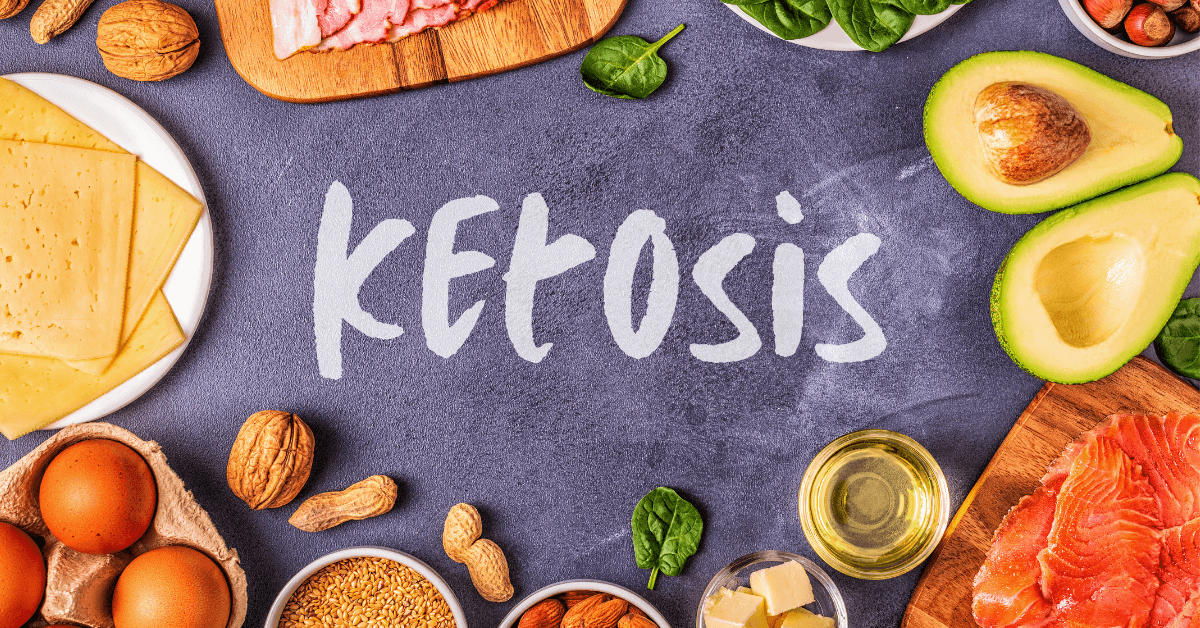Explore the world of Keto Side Effects: its benefits, potential side effects, and the crucial distinction from diabetes-related ketoacidosis (DKA) – all you need to know for informed health decisions.
Introduction
In the realm of dieting and health trends, one term that has gained significant attention is “ketosis.” Many individuals are curious about what ketosis is, how it works, and whether it offers any health benefits. In this article, we’ll delve into the world of ketosis, exploring its intricacies, benefits, and potential side effects.
What is Ketosis?
Ketosis is a natural metabolic state in which your body utilizes fat as its primary source of energy instead of carbohydrates. During ketosis, the liver produces molecules called ketones from stored fat, and these ketones become the main fuel for your body and brain. This metabolic shift occurs when your carbohydrate intake is significantly reduced, forcing your body to turn to fat stores for energy production.
What is the Ketosis Diet?
The ketosis diet, commonly known as the keto diet, is a high-fat, low-carbohydrate eating plan designed to induce and maintain ketosis. The primary goal of the keto diet is to drastically reduce carbohydrate intake while increasing the consumption of fats. By doing so, the body enters a state of ketosis, where it burns fat for fuel.
Navigating Ketosis: Factors and Effects
How Many Carbs Do I Need for Ketosis?
The carbohydrate intake required to achieve ketosis varies from person to person. Generally, most people need to limit their daily carb intake to around 20 to 50 grams. This restriction prompts the body to deplete its glycogen stores and transition into ketosis.
How Long Does It Take to Get into Ketosis?
The time it takes to enter ketosis varies, but it typically takes about two to seven days of consuming a very low-carb diet. During this adaptation phase, you might experience symptoms known as the “keto flu,” including fatigue, headaches, and irritability. These symptoms are temporary and usually subside as your body adjusts to using ketones for energy.
Benefits of Ketosis
Ketosis offers several potential benefits, making it an appealing choice for some individuals:
- Weight Loss: The keto diet’s ability to promote fat burning can lead to effective weight loss.
- Stable Blood Sugar: Ketosis can help stabilize blood sugar levels, which is beneficial for individuals with diabetes.
- Enhanced Mental Focus: Some people report improved cognitive function and mental clarity while in ketosis.
Exploring Potential Keto Side Effects
However, it’s essential to note that ketosis is not without its potential side effects. It’s crucial to understand these potential drawbacks before embarking on a keto diet:
- Keto Flu: As mentioned earlier, the initial phase of ketosis might bring about symptoms such as fatigue, nausea, and headaches.
- Digestive Issues: Some individuals may experience constipation due to the low-fiber nature of the keto diet.
- Nutrient Deficiencies: Restricting certain food groups can lead to deficiencies in essential nutrients like vitamins and minerals.
- Bad Breath: An unpleasant side effect known as “keto breath” can occur due to the production of acetone, a type of ketone.
- Increased Cholesterol Levels: Some people may observe a rise in cholesterol levels while on a keto diet.
Ketosis vs. Diabetes-related Ketoacidosis (DKA)
It’s crucial to differentiate between nutritional ketosis and a dangerous condition called diabetic ketoacidosis (DKA). Nutritional ketosis is a controlled state where ketone levels remain safe. On the other hand, DKA is a potentially life-threatening complication of diabetes, characterized by extremely high ketone levels and acidic blood pH. It’s essential to consult a healthcare professional if you suspect any issues related to ketosis or diabetes.
Conclusion
In conclusion, ketosis is a fascinating metabolic state that offers potential benefits, such as weight loss and improved blood sugar control. However, it’s vital to be aware of the potential Keto side effects associated with the keto diet. Before making any significant dietary changes, it’s advisable to consult with a healthcare provider to determine if the keto diet is a suitable choice for your individual health needs.
FAQs
- Is ketosis safe for everyone?
Ketosis is generally safe for most people; however, individuals with certain medical conditions, such as kidney issues, should approach it with caution. Consultation with a healthcare professional is recommended. - Can I achieve ketosis without following a strict keto diet?
Yes, you can achieve ketosis through methods like intermittent fasting or following a low-carb diet. The key is to significantly reduce your carbohydrate intake. - How can I minimize the side effects of the keto flu?
Staying hydrated, consuming adequate electrolytes, and gradually reducing carb intake can help alleviate the symptoms of the keto flu. - Is it possible to stay in ketosis long-term?
Yes, some individuals choose to maintain a ketogenic lifestyle for the long term. However, it’s essential to ensure a balanced and varied diet to prevent nutrient deficiencies. - Can I exercise while in ketosis?
Yes, you can exercise while in ketosis. However, it’s advisable to listen to your body, as your energy levels might be different from when you were using carbohydrates as fuel.






